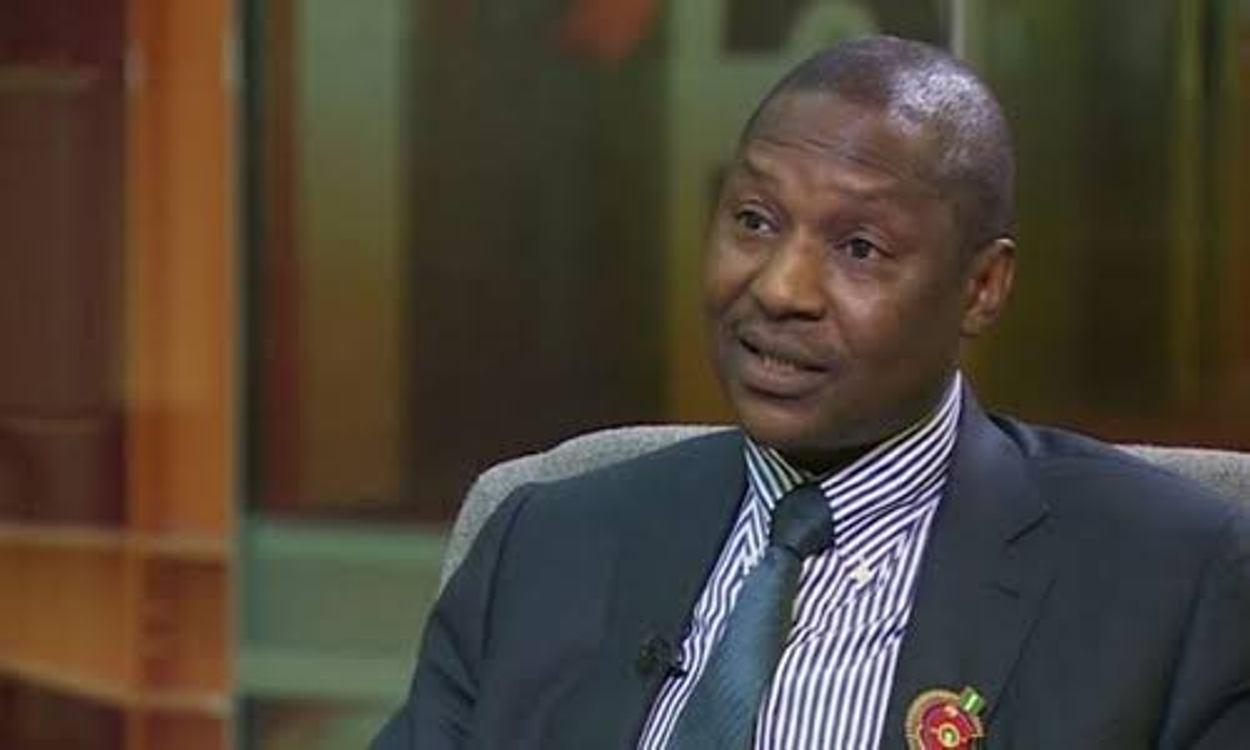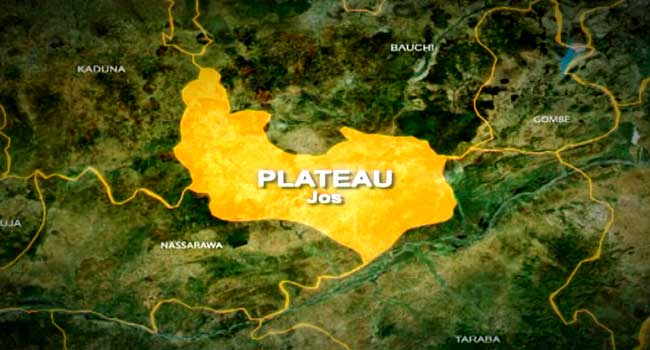The National Assembly, on Thursday, dismissed a threat by the Minister of Justice and Attorney-General of the Federation, Abubakar Malami (SAN), that he would oppose the Electoral Act (Amendment) Bill, if it was based on selfish interest.
The Chairman of the Senate Committee on Media and Public Affairs, Senator Ajibola Basiru, specifically dismissed Malami as a political appointee, who could not speak for the President, Major-General Muhammadu Buhari (retd.), on institutional matters like the bill.
Basiru was reacting to a recent interview granted by Malami in which the minister said Buhari would not assent to the reworked bill, if its provisions were considered to be of selfish interest.
The AGF had hinted that Buhari might withhold assent from the bill, if it was considered to have proposed laws based on personal interests.
According to the minister, the bill, which the National Assembly transmitted to the Presidency the second time on Monday last week, just got to him on Monday for legal advice.
When asked if he would advise the President to reject the amended bill if he was not satisfied with the new version, Malami said, “Certainly, if I am not satisfied and if I am of the opinion that it is against the public interest, the national interest; and then against the dictates of democratic process, I would advise accordingly.
“But then, one thing I can tell you is that we are all interested in leaving behind a legacy of a lasting democracy; a democracy that indeed accommodates the collective interest of the Nigerian state, and eventually advances the national interest, national development and deepens the democratic process
“So, with these considerations associated with deepening democracy; with the considerations associated with the national and public interest, we will certainly do whatever it takes to move democracy to the next level.”
Responding in a telephone interview with our correspondent on Wednesday, Basiru said, “I cannot be responding to Malami. Let the President talk and we will respond (to Buhari). I represent an institution, which is the National Assembly. We are not on the same par. If the President speaks, then we can respond as an institution.
“There are three arms of government: the executive headed by the President; the National Assembly (legislature), and the judiciary. I speak on behalf of the Senate, which is an institution, so I can’t be responding to an appointee of the President; I can’t be responding to Malami. We can only respond to correspondence from the President and authenticated by him (Buhari); we cannot be responding to an appointee of the President. We are an institution.”
Chairman of the House Committee on Media and Public Affairs, Benjamin Kalu, in his response, said the minister might need to define what he meant by ‘selfish interest’. According to him, the parliament was guided by national interest in the consideration and passage of the bill.
Kalu said, “I don’t know his definition of ‘selfish interest’, of course, it is not a tool in making laws for the country. But public interest is the instrument used in making laws, not selfish interest. And the only way that you can measure public interest is through the steps outlined by our laws, one of which is public hearing or stakeholders’ engagement.
“Another one is consensus or majority opinion of the parliament on an issue, reflective of the opinion of the people that they (lawmakers) represent. If the majority of those in the parliament are for a particular position, it means that those who have asked them (lawmakers) to represent them are speaking with one voice. That is how you measure public interest.”
The House’ spokesman also stated that the opinions and interests of the Independent National Electoral Commission, political parties, governors, civil society organisations and other public stakeholders in the bill could not have been considered to be selfish.
A senior official in the National Assembly, who spoke on condition of anonymity, corroborated the Senate’s spokesman, saying, “If he, as an appointee of the President, made an observation, until that observation is formalised by the institution that he represents, which is the Presidency, we cannot give much attention to it until it comes from the institution.”
The source added, “If Mr. President finds out that there is an element of selfish interest, he will communicate that to us and we will look at it. Not that Malami will tell us, the President will communicate directly to us.”
The PUNCH had reported in December that the President had rejected the last electoral bill mainly on the advice of Malami.
Recently, there were reports that some members of the cabal in the Presidency were opposed to some provisions of the bill.
According to the reports, they are not comfortable with the provision which mandates appointees to resign before the primaries of their parties.
Both the Senate and the House of Representatives had reworked the electoral bill for the second time by concurring on consensus candidacy and setting fresh conditions for political parties in the nomination of candidates for elections.
Buhari, last year, had vetoed the electoral bill and sent it back to the National Assembly over the restriction of political parties to direct primary, insisting on the direct or indirect.
The House had amended Clause Section 87 of the Electoral Act 2010, which is Clause 84 of the Electoral Act (Amendment) Bill, by inserting the indirect primary option.
The Senate, however, not only added indirect primary, but also consensus adoption of candidates for elections by a political party.
By passing different amendments to the bill, the Senate and the House were expected to refer the versions to a conference committee to harmonise the differences and report back for final passage and transmission to the President for assent.
However, both the Senate and the House of Representatives took a shorter route by rescinding their decisions on the amendments last week and re-amending the electoral bill.
This time, the House concurred with the Senate on the consensus, while both chambers passed the same conditions set for the option.
The President had said in his interview with Channels TV on January 5, 2022, that he would sign the bill once the mandatory direct primary clause was removed.
Copyright PUNCH.






2 Comments